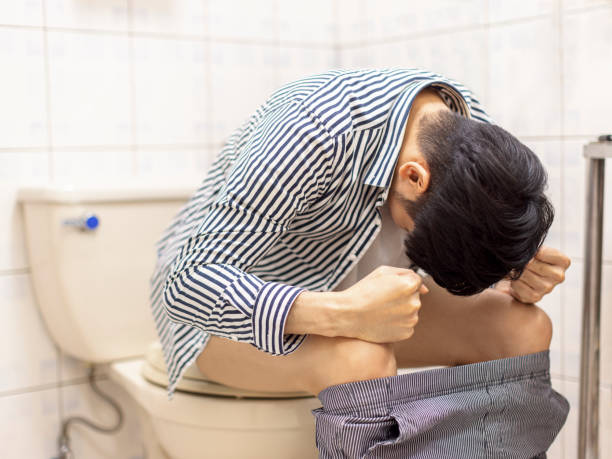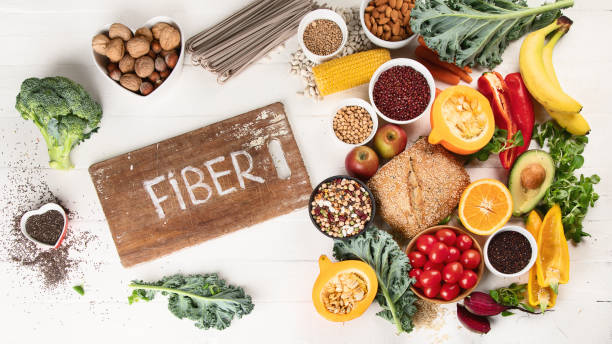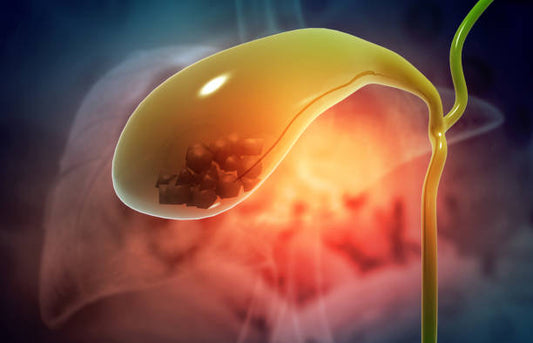Constipation is a common condition that affects many people. It is a digestive problem characterized by infrequent bowel movements or difficulty passing stools. While occasional constipation is not usually a cause for concern, chronic constipation can lead to discomfort and more serious health problems.

Causes of Constipation
Constipation can be caused by a variety of factors, including:
Low fiber diet: A diet that is low in fiber can lead to constipation, as fiber helps to add bulk to stools and promote regular bowel movements.Dehydration: Lack of water intake can lead to dehydration, which can cause stools to become hard and difficult to pass.
Sedentary lifestyle: Lack of physical activity can contribute to constipation by slowing down the digestive system.
Medications: Certain medications, such as opioids, antidepressants, and antacids, can cause constipation as a side effect.
Medical conditions: Medical conditions such as irritable bowel syndrome (IBS), hypothyroidism, and diabetes can lead to constipation.
Symptoms of Constipation

The symptoms of constipation can vary from person to person. Some common symptoms include:
- Infrequent bowel movements: A person with constipation may have fewer than three bowel movements per week.- Hard, dry stools: Stools that are hard and difficult to pass are a common symptom of constipation.
- Straining during bowel movements: Difficulty passing stools can cause a person to strain during bowel movements.
- Abdominal pain and bloating: Constipation can cause abdominal pain and bloating due to the buildup of stool in the intestines.
Treatments for Constipation
The treatment for constipation depends on the underlying cause and severity of the condition. Some common treatments include:
1. Eating a diet rich in fiber can help to soften stools and promote regular bowel movements.
2. Staying hydrated can help to prevent dehydration, which can contribute to constipation.
3. Regular physical activity can help to stimulate the digestive system and promote regular bowel movements.
4. Over-the-counter laxatives or prescription medications may be recommended for more severe cases of constipation.
5. Making lifestyle changes, such as increasing physical activity, managing stress, and avoiding certain medications, can help to prevent constipation.
Home Remedies for constipation
Constipation is a common condition that can be uncomfortable and inconvenient. While there are many over-the-counter and prescription medications available to treat constipation, there are also several effective home remedies that can help to promote regular bowel movements. Here are some home remedies for constipation:
Increase fiber intake: Eating a diet that is high in fiber can help to promote regular bowel movements. Foods that are rich in fiber include fruits, vegetables, whole grains, and legumes.Drink more water: Staying hydrated can help to prevent constipation by softening stools and promoting regular bowel movements. Aim to drink at least eight glasses of water per day.
Exercise regularly: Regular exercise can help to stimulate the digestive system and promote regular bowel movements. Aim for at least 30 minutes of moderate exercise per day.
Try herbal remedies: Certain herbs, such as senna, psyllium, and aloe vera, have laxative properties and can help to promote regular bowel movements. However, it is important to talk to your healthcare provider before using herbal remedies.
Use a stool softener: Stool softeners, such as docusate sodium, can help to soften stools and make them easier to pass. However, it is important to talk to your healthcare provider before using a stool softener.
Massage the abdomen: Massaging the abdomen in a clockwise direction can help to stimulate the digestive system and promote regular bowel movements.
Practice relaxation techniques: Stress and anxiety can contribute to constipation. Practicing relaxation techniques, such as deep breathing, yoga, or meditation, can help to reduce stress and promote regular bowel movements.
Consider probiotics: Probiotics are beneficial bacteria that can help to promote digestive health. They can be found in foods such as yogurt, kefir, and sauerkraut, or taken in supplement form.
Why Your Diet Matters: the Link between Fiber and Constipation

Fiber is an essential nutrient that plays a crucial role in digestive health, and it is an important factor in preventing and treating constipation. Fiber is a type of carbohydrate that is found in plant-based foods such as fruits, vegetables, whole grains, nuts, and seeds.
When we eat fiber, it passes through the digestive system relatively intact, adding bulk to the stool and helping to move it through the intestines more quickly. This can help to prevent constipation by keeping the digestive system regular and preventing stool from becoming too hard or dry.
In addition to promoting regular bowel movements, fiber can also have other health benefits such as reducing the risk of heart disease, diabetes, and certain types of cancer.
Unfortunately, many people do not consume enough fiber in their diet, which can contribute to constipation and other digestive problems. The recommended daily intake of fiber is around 25 grams for women and 38 grams for men, but many people fall short of this goal.
To increase your fiber intake and prevent constipation, it is important to eat a variety of fiber-rich foods such as fruits, vegetables, whole grains, legumes, nuts, and seeds. In addition, it is important to drink plenty of fluids, as fiber absorbs water and can help to soften stool.
Overall, the link between fiber and constipation highlights the importance of a healthy diet in promoting good digestive health. By making simple dietary changes and increasing your fiber intake, you can help to prevent constipation and promote regular bowel movements.
Best Medicine for constipation
There are several over-the-counter and prescription medications available for the treatment of constipation. The best medicine for constipation depends on the underlying cause and severity of the condition, as well as individual factors such as age, overall health, and other medications being taken. Here are some common types of constipation medications:
Bulk-forming laxatives: These medications, such as psyllium, methylcellulose, and polycarbophil, work by adding bulk to stools and promoting regular bowel movements. They are generally considered safe and effective, but may take several days to work.Osmotic laxatives: These medications, such as magnesium hydroxide, lactulose, and polyethylene glycol, work by drawing water into the intestines, softening stools and promoting bowel movements. They are generally safe and effective, but may cause side effects such as bloating and gas.
Stimulant laxatives: These medications, such as bisacodyl and senna, work by stimulating the muscles of the intestines, promoting bowel movements. They are generally effective but can cause cramping and other gastrointestinal side effects.
Stool softeners: These medications, such as docusate sodium, work by softening stools, making them easier to pass. They are generally safe and effective, but may take several days to work.
Lubricant laxatives: These medications, such as mineral oil, work by lubricating the intestines, making it easier for stools to pass. They are generally safe and effective but may interfere with the absorption of certain nutrients.
Can antibiotics cause constipation
Yes, antibiotics can sometimes cause constipation as a side effect. Antibiotics are medications used to treat bacterial infections by killing or inhibiting the growth of bacteria. However, they can also affect the natural balance of bacteria in the gut, which can lead to digestive problems such as constipation.
When antibiotics disrupt the balance of gut bacteria, this can cause a reduction in the production of short-chain fatty acids, which are important for promoting regular bowel movements. In addition, antibiotics can slow down the movement of food through the intestines, which can also contribute to constipation.
If you are taking antibiotics and experiencing constipation, it is important to talk to your healthcare provider. They may recommend a stool softener or other medication to help relieve constipation, or they may suggest making dietary and lifestyle changes to promote regular bowel movements. In addition, your healthcare provider may be able to adjust your medication regimen or recommend a different antibiotic to help alleviate constipation.
Can stress cause constipation
Yes, stress can cause constipation. When the body is under stress, it activates the "fight or flight" response, which can affect the digestive system. This can cause the muscles in the intestines to tense up, which can slow down the movement of food and waste through the digestive tract. In addition, stress can also affect the balance of gut bacteria, which can contribute to digestive problems such as constipation.
Chronic stress can also lead to changes in eating habits, such as overeating or undereating, which can also contribute to constipation. For example, consuming too little fiber or fluids can make stools harder and more difficult to pass.
If you are experiencing constipation as a result of stress, it is important to manage your stress levels through techniques such as meditation, exercise, and relaxation exercises. In addition, making dietary and lifestyle changes such as consuming more fiber and fluids, and getting regular exercise can help promote regular bowel movements. If constipation persists, it is important to talk to your healthcare provider, as they may recommend additional treatments such as stool softeners or laxatives.












